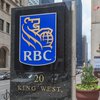7 Top Questions We Get Asked as Brokers

A mortgage broker’s job is to help connect you, the borrower, with the right lender for your mortgage. If you are a home buyer in Canada looking to begin the search for a home, you may want to consult with a mortgage broker. If you are wondering what questions to ask your broker, look no further, as we have compiled answers to the seven most commonly asked questions.
Which Lender is Best for Me?
When choosing a lender for their mortgage, many first-time homebuyers may wonder what they should be looking for. The lender you choose will depend on your income, credit score, and current financial situation.
While AAA lenders such as major banks may have lower interest rates, qualifying for a mortgage with a AAA lender can be challenging for many Canadians given the soaring house prices and government imposed stress test. If your financial history is not strong, you may not be able to pass the stress test and may choose to instead opt for a private lender. Working with an alternative lender is a great way to get approved for a larger mortgage amount, although the rates tend to be higher.
Your mortgage broker can lay out all your options, help you determine which lenders you are eligible for, and work with you to choose the best lender for your current financial situation.
How Can I Get Pre-Approved for a Mortgage?
For many homebuyers, navigating mortgage eligibility can be a challenging process. Working with your broker to get pre-approved for a mortgage is one of the best steps you can take to ease this process.
Getting pre-approved for a mortgage means that your broker has looked into your financial background and worked with the right lender to qualify you for a loan that is appropriately sized based on your financial situation. A broker can calculate what size of mortgage you are eligible for, help you estimate your monthly mortgage payments, and will also work to help you negotiate better rates and terms with your lender.
In order to get you qualified, your broker will consider your income, credit score, down payment size, and other factors. The pre-approved loan amount and rate will get locked down for approximately 90 to 120 days depending on the lender, which should give you enough time to browse the housing market while allowing you to freeze your rate even if market rates go up.
Should I Opt For a Fixed or Variable Rate?
While there are advantages to both fixed and variable rates, most first-time homebuyers prefer fixed rates because of their reduced risk. When you enter into a fixed-rate mortgage contract, you can rest assured that your rate will remain the same, even as market interest rates fluctuate or increase.
Opting for a fixed-rate allows you to lock in your current loan rate and save yourself a lot of money in the case that interest rates go up significantly over the term of your mortgage. This is also a great way to ensure consistency in your monthly payments, making planning ahead far more manageable than with a variable rate.
It is important not to ignore the option of a variable rate mortgage, as it might be a better choice for your specific financial situation and goals.
To learn more about the difference, and the pros and cons of a fixed-rate mortgage vs a variable-rate mortgage, read our article about Fixed-Rate vs Variable-Rate mortgages .
Can I Break My Mortgage Early?
If you pay off your mortgage before the agreed-upon date, your lender may require you to pay a prepayment fee. When you pay off your mortgage quicker, you pay less interest, which is excellent for you but disadvantageous to your lender. Typical prepayment fees can vary from province to province, but they are typically equivalent to the greater of either three months’ worth of interest payments or interest differential here in Ontario.
If your goal in breaking your mortgage is to move to another property, you may be able to avoid these fees by porting your mortgage . Porting your mortgage means taking the mortgage rate and contract you currently have with your lender and transferring it to a new property. Your broker can help you navigate this process, saving you thousands of dollars in potential fee and penalty payments.
How Much Should I Put Down for My Down Payment?
Depending on the base price of your home, the minimum down payment you are required to put down can range from 5% to 20% of the asking price. Beyond that, however, you may be wondering how much more money you should put down.
The larger your down payment, the smaller your mortgage loan will be. This reduces the risk you present to your lender, which is why putting down a larger payment can help you get approved for more favourable mortgage rates and terms. Of course, this may not always be the case. Working with a professional broker will allow you to receive the best advice for your unique situation.
What Are Some Hidden Costs I Should Look Out For?
If you are new to the home buying process, you may be surprised to find yourself paying a number of unexpected fees. From start to finish, there are several hidden costs that you may not be aware of, such as: home inspection fees, land transfer fees, appraisal fees, title registration costs, taxes, lawyer fees, and more.
When you work with a reputable mortgage broker, they can lay out these hidden costs ahead of time so that you can take them into account when financially planning your property purchase.
What Can I Expect From Closing?
When thinking about the timeline of your closing day , it is essential to ask your lender if they are able to guarantee an on-time closing for your mortgage. Homebuyers may need to operate on a tight timeline for a variety of reasons, but not every lender can fulfil those needs. A knowledgeable mortgage broker can help you pick a lender that meets both your time constraints and personal needs.
Another thing to consider is closing costs. A lot of those “hidden fees” mentioned earlier, such as appraisal costs, legal fees, and land transfer taxes will be added on at the time of closing before you even start paying off your mortgage. In some cases, you may be able to add a portion of this amount into your mortgage so that you can amortize the payments over a longer period of time rather than pay it all up front. Your broker can help you navigate those fees and plan for them ahead of time.
Have a question that isn’t on this list? We would be happy to answer it for you! Contact Clover Mortgage to schedule a free consultation with one of our professional mortgage brokers today.





